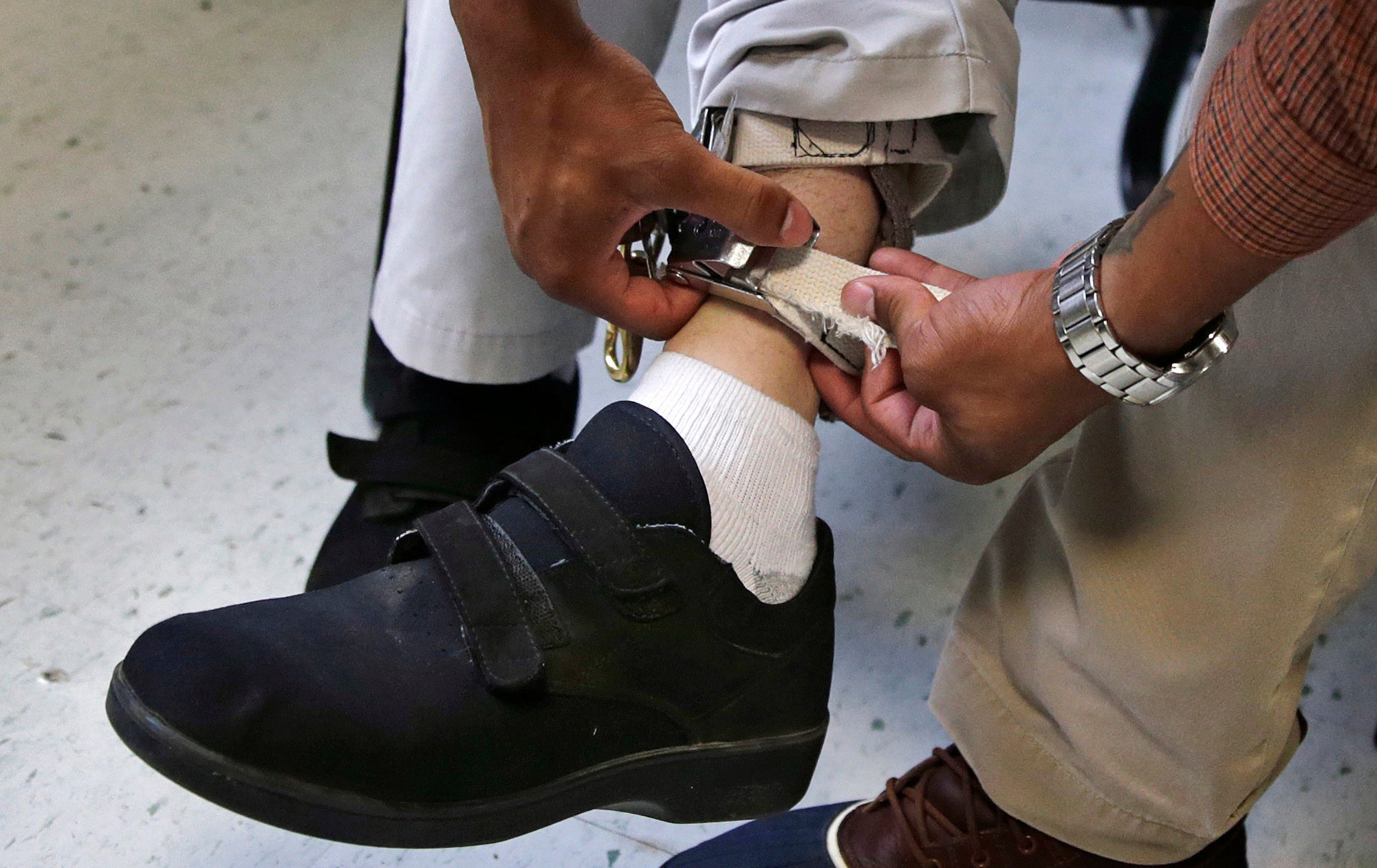School wins legal battle to electric shock children to ‘correct behaviour’
The Judge Rotenberg Center for children with disabilities can continue to use electric shocks on its students as US Food and Drug Administration ban is overturned

Your support helps us to tell the story
From reproductive rights to climate change to Big Tech, The Independent is on the ground when the story is developing. Whether it's investigating the financials of Elon Musk's pro-Trump PAC or producing our latest documentary, 'The A Word', which shines a light on the American women fighting for reproductive rights, we know how important it is to parse out the facts from the messaging.
At such a critical moment in US history, we need reporters on the ground. Your donation allows us to keep sending journalists to speak to both sides of the story.
The Independent is trusted by Americans across the entire political spectrum. And unlike many other quality news outlets, we choose not to lock Americans out of our reporting and analysis with paywalls. We believe quality journalism should be available to everyone, paid for by those who can afford it.
Your support makes all the difference.A federal court of appeals ruled on Tuesday that a Massachusetts school for children with disabilities can continue administering electric shocks to its students.
The US Food and Drug Administration (FDA) had previously banned the electric shock treatment used at the Judge Rotenberg Center, Canton. The institution created the controversial treatment to correct aggressive or self-harming behaviour in adults and children.
The school, along with a group of parents and guardians of students, had challenged the previous FDA ban. The court of appeals for the DC Circuit found that the treatment falls into medical regulations and therefore is beyond the FDA’s remit of control.
“With the treatment, these residents can continue to participate in enriching experiences, enjoy visits with their families and, most importantly, live in safety and freedom from self-injurious and aggressive behaviours,” the school said in a statement following the ruling.
“We have and will continue to fight to keep our loved ones safe and alive and to retain access to this life-saving treatment of last resort,” parents of the students added in a statement.
The Judge Rotenberg Center, Canton, is the only school in the US that uses electric shock treatment on its students, and has suffered heavy criticism from disability rights advocates, including Mental Disability Rights International (DRI) and the United Nations, which considers the practice “torture”.
“The idea of using electric shocks to torture children has been recognised as unconscionable around the world,” DRI’s president, Laurie Ahern, told the Guardian.
“The real torture is what these children are subjected to if they don’t have this programme,” institute and treatment founder Matthew Israel previously said to ABC News.
“They’re drugged up to the gills with drugs that cause them to be so sedated that they essentially sleep all day.”
There are around 300 students, including 48 overnight residents, at the Judge Rotenberg Center. According to Massachusetts News, about 55 of these are approved for the Graduated Electronic Decelerator shock devices, which remotely administer a powerful shock to the wearer’s skin.
“One client of ours is a woman who hit her head against the wall so many times that her retinas were detached,” said Attorney Max Stern, who represents the parents and guardians of Judge Rotenberg Center.
“It was not until she went to multiple various other institutions, not until she got to JRC and got this treatment that she was able to get this behaviour under control so she could have surgery to make it possible for her to see again,” Stern told Massachusetts News.
However, a 2006 report by the New York State Education Department found that the device was regularly used for minor disobedience and “behaviours that are not aggressive, health dangerous or destructive, such as nagging, swearing and failing to maintain a neat appearance”.
The report also found no evidence that the school “considers the potential negative effects, such as depression or anxiety, that may result from the use of aversive behavioural strategies with certain individual students”.
The school claims on its website that it “has provided very effective education and treatment to both emotionally disturbed students with conduct, behaviour, emotional, and/or psychiatric problems, as well as those with intellectual disabilities or on the autism spectrum”.
The Independent has contacted Judge Rotenberg Center for further comment.
Subscribe to Independent Premium to bookmark this article
Want to bookmark your favourite articles and stories to read or reference later? Start your Independent Premium subscription today.
Join our commenting forum
Join thought-provoking conversations, follow other Independent readers and see their replies
Comments